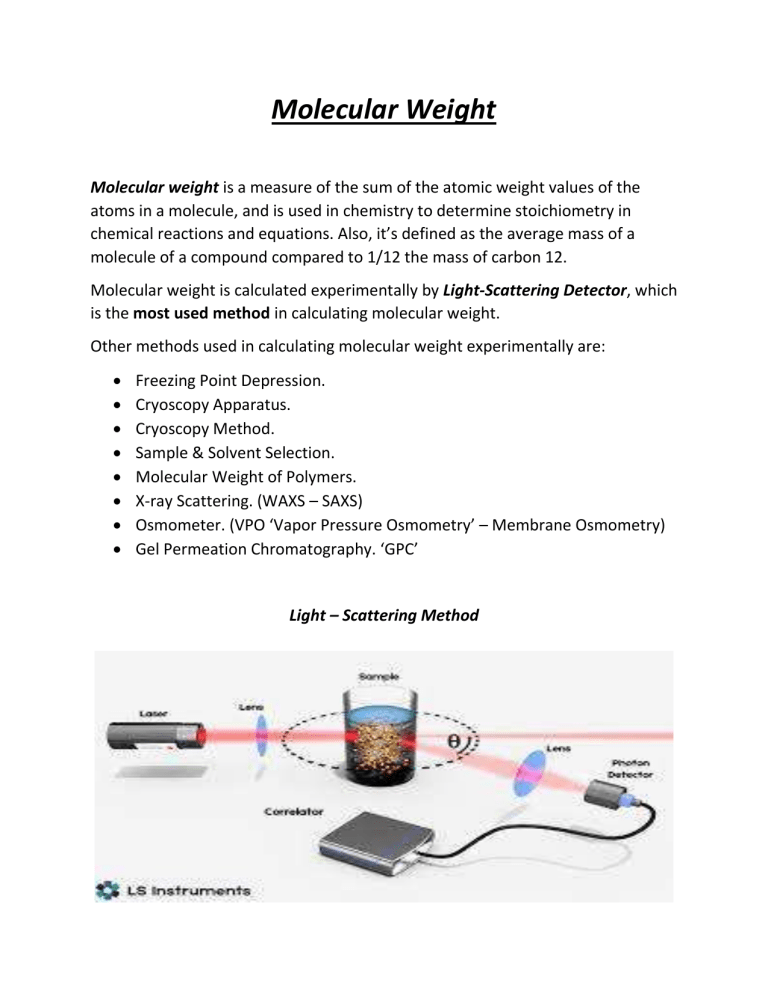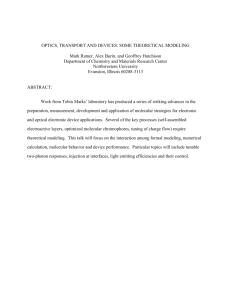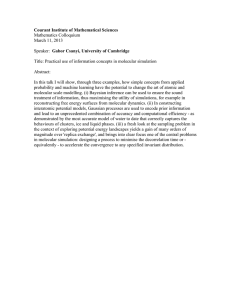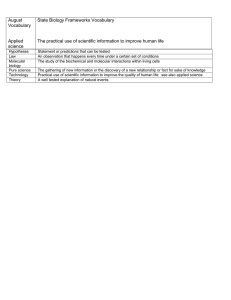
Molecular Weight Molecular weight is a measure of the sum of the atomic weight values of the atoms in a molecule, and is used in chemistry to determine stoichiometry in chemical reactions and equations. Also, it’s defined as the average mass of a molecule of a compound compared to 1/12 the mass of carbon 12. Molecular weight is calculated experimentally by Light-Scattering Detector, which is the most used method in calculating molecular weight. Other methods used in calculating molecular weight experimentally are: Freezing Point Depression. Cryoscopy Apparatus. Cryoscopy Method. Sample & Solvent Selection. Molecular Weight of Polymers. X-ray Scattering. (WAXS – SAXS) Osmometer. (VPO ‘Vapor Pressure Osmometry’ – Membrane Osmometry) Gel Permeation Chromatography. ‘GPC’ Light – Scattering Method References https://chem.libretexts.org/Bookshelves/Analytical_Chemistry/Physical_Methods _in_Chemistry_and_Nano_Science_(Barron)/02%3A_Physical_and_Thermal_Anal ysis/2.02%3A_Molecular_Weight_Determination




